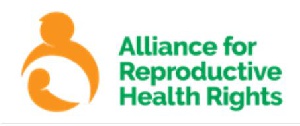Alliance for Reproduction Health Rights (ARHR) has appealed to the Ministry of Health (MOH) to equip all healthcare facilities with essential items to enhance primary care in all districts across the country.
ARHR, a non-governmental organization noted that it was crucial for district health facilities to have emergency vehicles for the accident units, drugs for mental illness, motorbikes for courier services, Blood Pressure monitors, X’ray machines and data capturing tools to help enhance healthcare services.
ARHR made the call after presenting its research findings on the development of a national Gender Equality and Social Inclusion (GESI) which seeks to monitor the impact of policies and commitment related Universal Health Care (UHC) and their implementation on vulnerable groups.
The research funded by StarGhana, was carried out in Komenda-Edina-Eguafo-Abrem Municipal area, Agona East and South Dayi Districts.
Before the Zonal meeting held in Accra to disseminate findings from participatory monitoring of GESI, ARHR held validation workshops in the three districts.
The National Health Insurance Officers and district officials were given the opportunity to explain the new online renewal platform and the role of Social Welfare in allowing Persons with Disabilities (PWDs) and other GESI groups to register or renew for free in some special circumstances.
Mr Kekeli Tsikata, a Consultant of ARHR said the research captured the impression of citizens across the three districts regarding their experiences with the delivery primary health care.
According to Mr Tsikata, the research was also conducted to ascertain the extent to which marginalized groups were receiving the quality primary health.
Touching on the recommendations of the research, Mr Tsikata said community health workers ought to be punctual and report to work on time.
He said many respondents were not happy with the time at which some workers reported to work.
Additionally, Mr Tsikata said the staff strength of some Community-Based Health and Planning Services (CHPS) were inadequate and appealed to the Ghana Health to increase the number of staff.
On the National Health Insurance Scheme (NHIS), the Consultant observed that registration officers do not go to remote communities to register persons.
He, therefore, called for special registration to be conducted in remote areas so that PWDs and aged would have access and renew the NHIS cards.
“There is the need to educate the citizenry on both the content of the Patients Charter and the NHIS Policy documents to make it easier to assert their rights.
“There were questions as to precisely the extent to which NHIS provided coverage in addition to what remedies were available to them.
“PWDs and aged should be allowed to bypass queues where necessary,” the Consultant added.
Mr Tsikata who touched on the key findings of the research observed that there were difficulties in obtaining transportation to go to District health facilities, adding that there were instances that people were compelled to walk long distances in order to receive health care.
Ms Joyce Amedoe, Programmes Development Officer, ARHR noted that some health institutions were not creating conductive environment for addressing the health needs of women and girls.
Ms Amedoe, therefore, called for the review of existing policies in order to address GESI issues.
Health News of Friday, 1 February 2019
Source: ghananewsagency.org

















